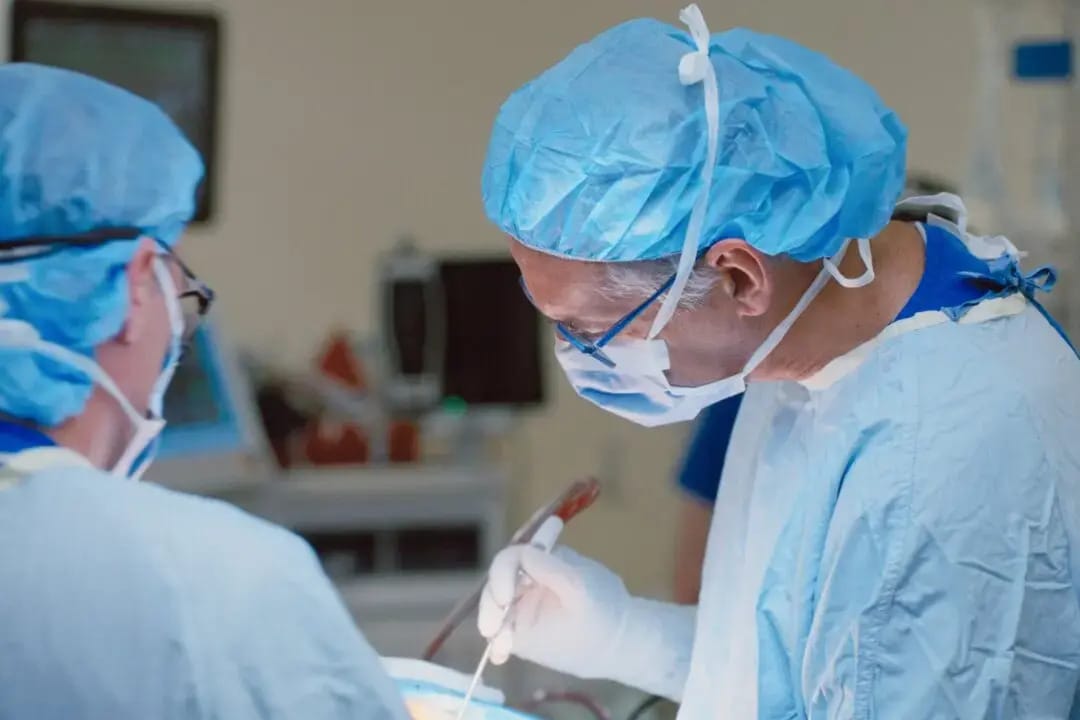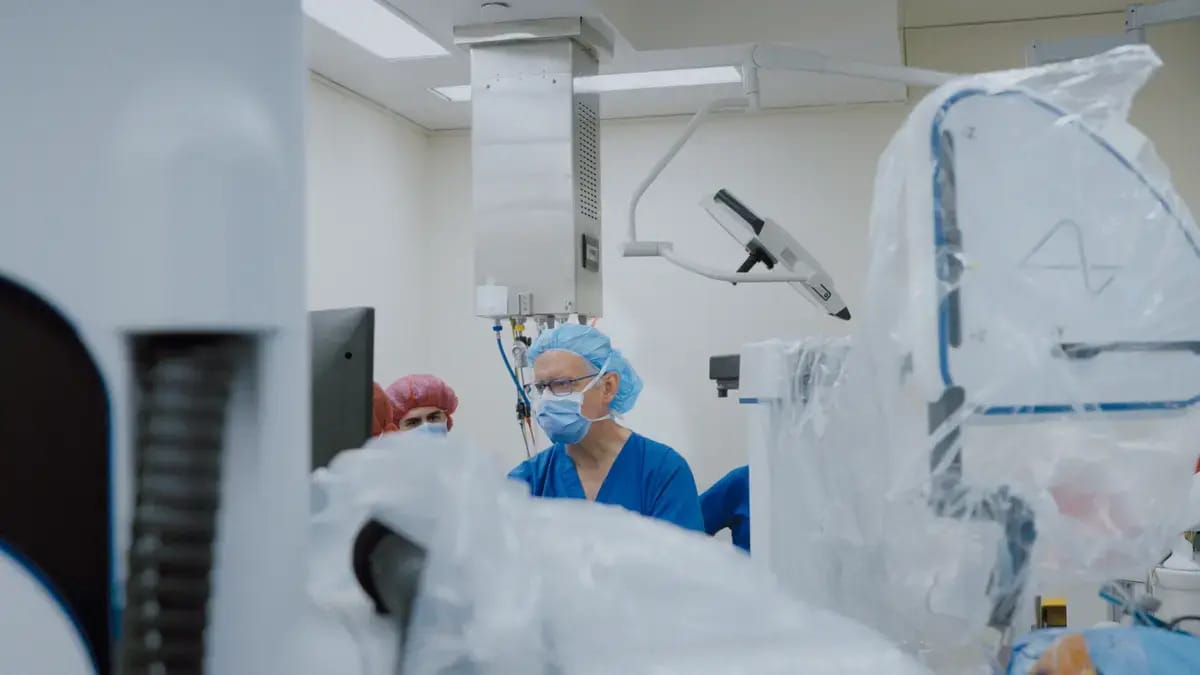- Epoch Morning Brief
- Posts
- Elon Musk’s Neuralink Chips Implanted for the First Time in Canadian Patients
Elon Musk’s Neuralink Chips Implanted for the First Time in Canadian Patients

Dr. Andres Lozano, the Alan and Susan Hudson Cornerstone Chair in Neurosurgery at the University Health Network (UHN), is seen in an operating room at Toronto Western Hospital on Aug. 27, 2025 during the first Neuralink procedure in Canada. (UHN Handout photo)
Two Toronto hospital patients have become the first Canadian recipients of the Neuralink brain chip created by American tech billionaire Elon Musk’s neurotechnology company.
Operations carried out on Aug. 27 and Sept. 3 at Toronto Western Hospital make it the first hospital in Canada to successfully implant the wireless brain-computer interface, the University Health Network (UHN) said in a press release.
The surgeries carried out on quadriplegia patients were part of a clinical trial known as the Canadian Precise Robotically Implanted Brain-Computer Interface Study and marked the first Neuralink procedures conducted outside the United States.
“It’s a profound honour to be a part of this breakthrough research and to lead Canada’s first Neuralink surgeries,” Dr. Andres Lozano, a neurosurgeon at Toronto Western Hospital, said in the Sept. 4 press release.
“This milestone represents a convergence of neuroscience, engineering, and clinical care.”
The clinical trial began last November to evaluate the safety and functionality of both Neuralink’s surgical robot and the brain chips that allow quadriplegic individuals to operate external devices through their thoughts, the UHN said.
Neuralink first connected with Lozano in 2023 about participating in clinical trials and the company announced Health Canada’s approval of the procedures last November. The government has given the green light for the Canadian surgical team to recruit six patients.
Recruitment is still ongoing, and is open to qualifying patients with restricted or no capacity to use both hands due to cervical spinal cord injury or amyotrophic lateral sclerosis (ALS), the health network said.
The two Canadian patients who have participated thus far are both individuals living with cervical spinal cord injuries, UHN said. They are set to attend follow-up appointments and research sessions as they become familiar with the devices.
Musk, who cofounded the tech company in 2016, characterized the Canadian surgeries as “good progress” by the Neuralink team in a post on X, his social media platform.

Dr. Andres Lozano, the Alan and Susan Hudson Cornerstone Chair in Neurosurgery at the University Health Network (UHN), during the first Neuralink procedure conducted at Toronto Western Hospital on Aug. 27, 2025. (UHN Handout photo)
How It Works
The Neuralink implant is composed of a transmitter linked to extremely thin “threads” that record neural activity. The device is placed into a patient’s brain by a surgical robot because the threads are so delicate, “they can’t be inserted by the human hand,” according to the neurotechnology company’s website.
The implant transmits electrical signals captured by the threads wirelessly to the Neuralink application, which uses machine learning to interpret a person’s thoughts as actions, allowing them to open a phone app or control a mouse on a computer screen with their mind.
The company completed its first human brain implant in January 2024 on Noland Arbaugh, a quadriplegic man who was paralyzed from the neck down after a swimming accident in 2016. The surgery was completed at the Barrow Neurological Institute in Phoenix, Arizona.
Neuralink has been criticized in recent years after the company was accused of questionable research methods involving animals. Media reports surfaced in 2022 and 2023 alleging that the research had harmful effects on monkeys involved in testing and that some of them had been euthanized as a result.
Musk has refuted past allegations of animal cruelty, saying that “no monkey has died as a result of a Neuralink implant.”
“First our early implants, to minimize risk to healthy monkeys, we chose terminal monkeys (close to death already),” he said in a 2023 X post.
U.S. recipients of the Neuralink chip have spoken out about the increased functionality they now have since the surgery, and Arbaugh has become an unofficial spokesman of sorts for the tech firm through speaking engagements and media interviews.
Neuralink hasn’t released much information about its future plans, but Musk has previously discussed the concept of a “neural lace” that could integrate a symbiotic digital layer with the human brain, thereby merging artificial intelligence with it.
The current Neuralink trial has yet to reach that stage and Musk has not confirmed if such plans are in the works for the future.